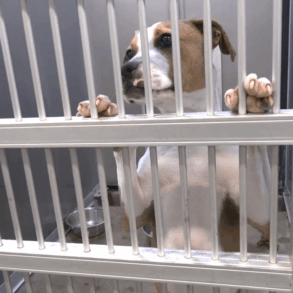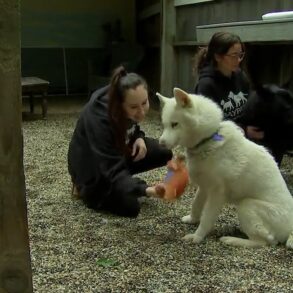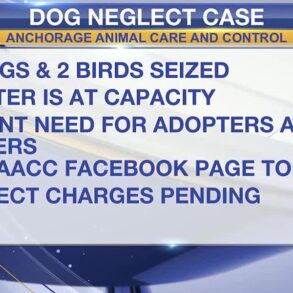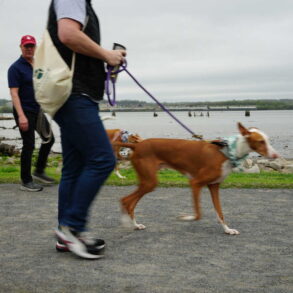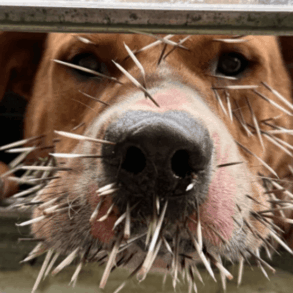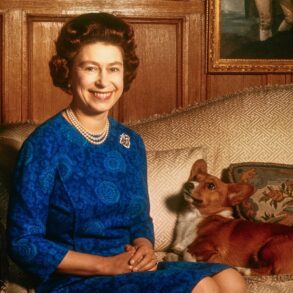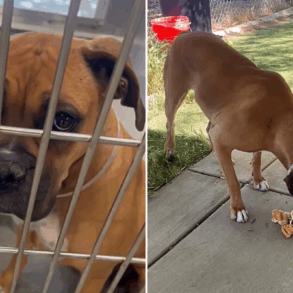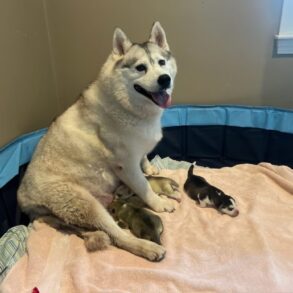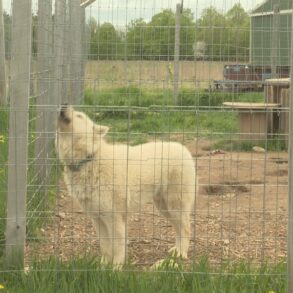
A rise in dog ownership worldwide reflects a growing desire to nurture without the demands of raising children, researchers have suggested.
The academics found that much of Europe, North America, and East Asia are now experiencing “sub-replacement fertility” – meaning people have fewer children than needed to maintain the population over time.
Instead, dog ownership has gained in popularity over the last few decades, and in most European countries, a quarter to half of households own at least one dog, the researchers said.
Dogs have long been considered members of the family, but the researchers found that “an increasing number of owners have begun to regard their dogs as their children.”
They added that “some owners might see their dog as a child surrogate to spoil, others actively choose to have dogs and not children”.
Owning a dog could “offer an opportunity to fulfil a nurturing drive similar to parenting, but with fewer demands than raising biological offspring”, the researchers said.
The UK’s fertility rate is already sinking but is projected to hit a low of 1.41 per woman over her lifetime in 2027 and stay at that rate for nearly a decade. Fertility rates in the UK have dropped faster than any other G7 nation since 2010, plummeting by nearly 25 per cent.
The UK’s fertility rate was at just 1.44 children per woman in 2023 – the lowest rate on record.
The research, published in the journal European Psychologist, asked: “Given the two trends of more dogs being viewed as family members and a decline in the number of children, an important question arises: are people choosing dogs as a substitute for children?”
The researchers from the Department of Ethology at Eotvos Lorand University in Budapest, Hungary, found that pet dogs offer an opportunity to form close emotional connections with a dependent being, providing positive emotions and a sense of purpose that resemble those experienced by parents.
People are beginning to choose dogs because they are “easier to control and care for than a child”, the researchers said.
The report suggested that some humans have taken their “biological needs to nurture and care for children” and “redirected [it] towards animals”.
“Some childless owners seem to engage in care behaviours towards their companion animals that mirror the parents’ investment in their children,” the academics found. “The demands of caring for a companion animal have been found to reinforce the choice not to have children among some pet owners.”
Laura Gillet, PhD student at the Eotvos Lorand University, said: “ Despite the high dependency and attachment of dogs to their caregivers, in the eyes of many, commitments coming with dog ownership remain less burdensome than child parenting.
“Among many factors, the relatively short lifespan of dogs might contribute to it, as most people expect to outlive their dog, but not their child.”
However, the researchers pointed out that treating dogs as a substitute for children and seeking infantile traits in them raises several ethical concerns. This includes the breeding of unhealthy breeds or overprotective caring behaviours that may lead to emotional and behavioural problems in the dog.
Eniko Kubinyi, senior author of the review, added: “We would like to point out that, contrary to popular belief, only a small minority of dog owners actually treat their pets like human children.
“In most cases, dog parents choose dogs precisely because they are not like children, and they acknowledge their species-specific needs.”
This post was originally published on this site be sure to check out more of their content.







